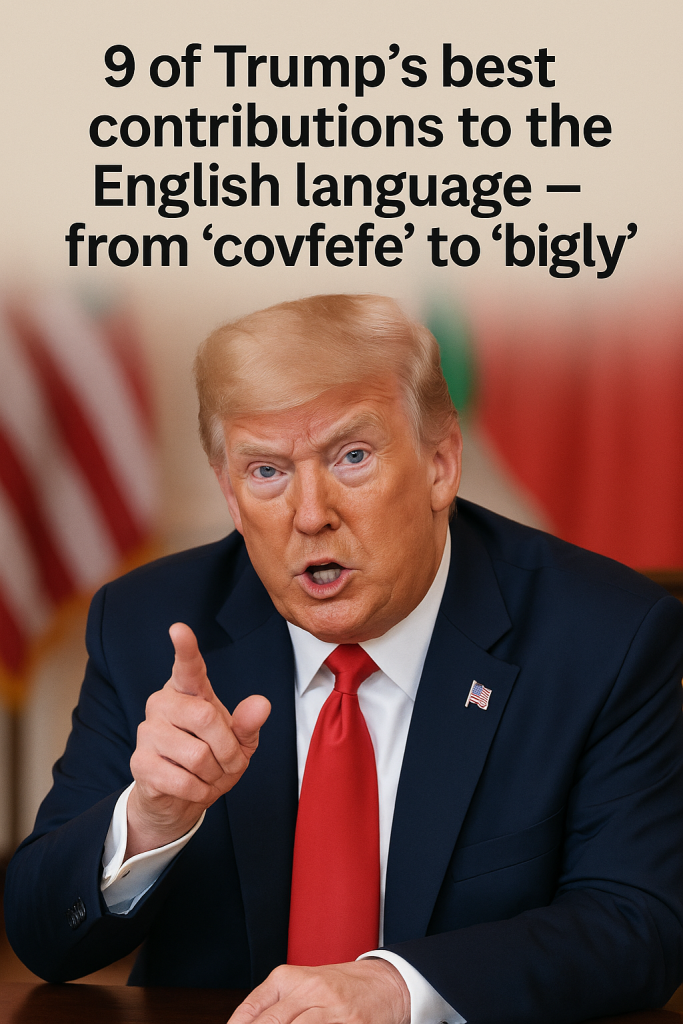Donald Trump’s tenure in the public eye, particularly during his presidency, was marked not only by political drama but also by a unique impact on the English language. His unconventional use of words, phrases, and typos quickly became part of popular culture, sparking both ridicule and fascination. In recent years, linguists and pop culture commentators alike have compiled lists celebrating Trump’s most memorable verbal quirks, some of which have even entered the broader lexicon.
Here, we take a closer look at nine of Donald Trump’s most notable contributions to the English language—from the infamous and mysterious to the intriguingly novel.
- Covfefe
Perhaps the most iconic and mysterious of Trump’s word inventions, “covfefe” originated from a late-night tweet in May 2017 that read, “Despite the constant negative press covfefe.” The tweet abruptly ended, leaving millions puzzled. The term instantly went viral, inspiring countless memes and debates. Although it is widely interpreted as a typo, “covfefe” sparked conversations about online communication mishaps and culminated in its playful entry into informal vocabulary as shorthand for enigmatic or garbled text.
- Bigly
“Bigly” attracted attention during Trump’s 2016 campaign, famously spoken repeatedly during debates. While some accused him of mispronouncing “big league,” linguistic experts observed that “bigly” is actually a real, albeit archaic, English adverb meaning “in a grand or impressive manner.” This quirky revival of an old term became a symbol of Trump’s distinct stylistic flair.
- Yuge
Closely related to “bigly,” Trump’s exaggerated pronouncement of “huge” as “yuge” entered everyday conversation, often used humorously to emphasize something enormous or significant. This phonetic twist gained popularity on social media and in political satire alike.
- Sad!
Trump frequently appended “sad!” at the end of tweets or remarks to express disappointment or criticism sharply and succinctly. This minimalist emphatic usage became a trademark, spawning variations such as “fake news, sad!” which continues to influence internet slang for signaling disapproval.
- The Fake News
While not coined by Trump, his persistent deployment and popularization of the phrase “fake news” dramatically reshaped its usage. Trump’s frequent allegations against media outlets redefined “fake news” in political discourse, prompting widespread discussion about misinformation and media trust.
- Witch Hunt
Trump’s repeated use of “witch hunt” to describe investigations against him popularized the phrase in contemporary political language. While the term existed beforehand, its relentless invocation gave it fresh prominence as a phrase questioning the legitimacy of legal scrutiny.
- Make America Great Again
Although a phrase rather than a single word, “Make America Great Again” (MAGA) became an instantly recognizable slogan, embedded deeply in political conversations and cultural references. It exemplifies Trump’s impact on political rhetoric through memorable, catchy phrasing.
- Trumped Up
In another twist of language, the phrase “trumped up” (meaning fabricated or false) took on



